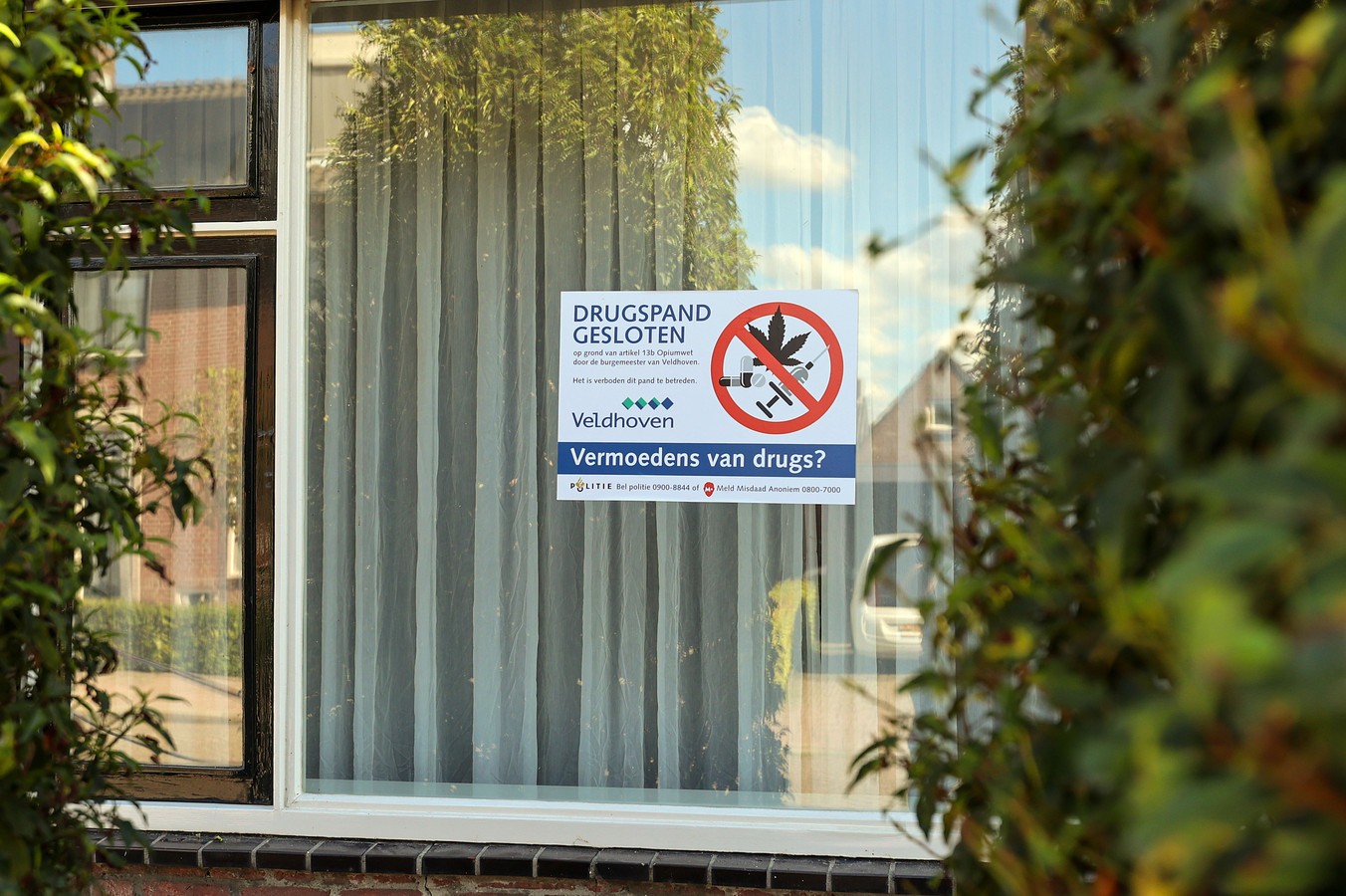The mayor should not be a sheriff

Jaws dropping in surprise – this is what legal expert Michelle Bruijn sees when she tells foreign legal experts about the Dutch approach to drugs crime. She herself also has serious misgivings regarding the policy adopted by many mayors. ‘They should not take on the role of “crime fighter” or “sheriff”.’
Text: Gert Gritter, Communication UG / Photos: Hesterliena Wolthuis
Crime and punishment
Illegal practices such as drug dealing or cannabis cultivation can be tackled in two ways. There is the long route via criminal law, which may lead to various penalties such as detention, a fine, or a community sentence, depending on the offence. There is also a short route: via administrative law. If drug trafficking, cannabis cultivation, or the presence of a commercial quantity of drugs is detected, a mayor can decide to temporarily close the premises where the offence has occurred. From a strictly legal perspective this is not a ‘real’ penalty. However, those directly involved who live or work on the premises perceive the measure as punishment and it is in fact usually intended as such. People who live in the vicinity and are impacted by the (suspected) illegal practices also believe that closure is literally a case of ‘justice being done’.
Unique policy
Such closures take place on the basis of Article 13b of the Dutch Opium Act (Opiumwet), also known as the Damocles Act. What can be wrong with this policy, which is virtually unique in the world? At first glance, surely it is an excellent idea for a residence or shop to be closed for six months if an ecstasy lab or cannabis farm is found there or if cocaine is traded there? Bruijn has a different view. The assistant professor at the Faculty of Law of the University of Groningen obtained a PhD in 2021 with her doctoral thesis ‘The alternative war on drugs’. Like her fellow legal scholars in other countries, she continues to be surprised by this Dutch practice whereby administrative law is improperly deployed as criminal law.
Infringement of rights
‘This measure infringes various rights of citizens,’ says Bruijn. ‘First of all the right of residence. Everyone is entitled to a roof over their head, but if you are confronted with a closure like this you are immediately out on the street and have to find shelter yourself. And not only you yourself, but also any partner, children and other household members there may be will also be affected. Secondly, this practice may interfere with ownership rights. That doesn’t apply if you rent the premises, but it does if you are the owner or the landlord. Thirdly, the legal protection through review by an independent court which exists in the criminal justice system is not available here. Yes, it is possible to lodge an objection or to appeal the decision, but the closure takes effect immediately. Besides, the people involved are often unfamiliar with legal routes, if they have any faith in authorities at all. In addition, criminal law is surrounded by various safeguards, to begin with the presumption of innocence (you are innocent until proven guilty).’
No proportionality
If this does not raise sufficient concern, Bruijn can point out more objections. ‘It is also the case that in most cases there is no proportionality. This kind of closure often is a ‘one-size-fits-all’ approach, which leaves no room for nuance or fine-tuning. It makes quite a difference whether they are a first-time offender or a repeat offender. There is also a big difference between a couple of students who use ecstasy pills in their spare time and share them with friends, without causing a direct risk to their surroundings, or criminals who have a fire-hazardous cannabis grow house in the attic of a terraced house. The measure works like a blunt instrument.’

Children turned out on the street
A no less important point is that the ‘good’ may suffer along with the ‘bad’. In criminal law it is inconceivable that children and partners should undergo the same punishment as convicted criminals. This goes against everyone’s sense of justice. ‘However,’ says Bruijn, ‘that is the consequence of mandatory closures. Even young children or pregnant women are thrown out on the street. Innocent employees lose their jobs and income if the shop where – unbeknownst to them – drugs are produced has to close. I know a case where an elderly couple had to leave their house because their son was dealing drugs, while they knew nothing about it. And don’t forget that if residents are allowed to return to their home, say six months later, the whole neighbourhood will regard them as “criminals” for years to come. You never lose that stigma.’
Immediate action
The policy has been used for years, apparently with success. How can this be explained? ‘It is quick, cheap, and simple,’ says Bruijn. ‘It can take years for a case to reach a conviction through criminal law, whereas a closure via administrative law can take immediate effect. It is also much cheaper, because in most cases there are no costs for court proceedings and lawyers. And above all, it is simple. No complicated, time-consuming procedures are required, for instance to safeguard the rights of the suspects and to wait for the court’s judgment. The position of the mayors also plays a role. They can show that they’re not “soft”, but act decisively. It makes them popular among the public, which is keen on the tough approach.’
Effectiveness
All objections could perhaps be dismissed if the policy was very effective. ‘But we just don’t know if that’s the case,’ says Bruijn. ‘The effects of these closures have never been investigated. Interviews I’ve had with the police and municipal officers show a varied picture. Police officers told me that neighbourhood residents sometimes have tears of joy in their eyes when something is finally done about a nuisance drug dealer by means of a closure. But it also happens that people in the neighbourhood were not aware of anything until a building had to close. For them it was the opposite – it increased their feeling of being unsafe. In addition, we don’t know what happens to people whose home has been closed. Where do they end up and do they in fact stop their activities?’

Solution
What solutions does Bruijn have to improve the situation? ‘Mayors should examine what the best solution is in each separate case. For instance, they could first issue a warning before proceeding to closure. They could also impose an order subject to a penalty for noncompliance: a hefty fine which would only be collected in the case of repeated offences’. The objections put forward by Bruijn and fellow legal experts are now more widely shared. On 2 February 2022, the Administrative Jurisdiction Division of the Council of State ruled that proportionality must be tested more strictly by the administrative court.
Tobacco
Does Bruijn think it’s a pity her area of expertise will become less relevant in the future? She laughs. ‘No, there is still plenty to research. I am now also investigating the non-smoking areas councils are introducing. Unlike with drug nuisance, in this case mayors are quite lax with their actions. They don’t make nearly enough use of all the available measures to combat smoking and to aim for a smoke-free generation by 2040. The main incentive here seems to be whether a council is eligible for funding… Apart from that, I don’t think that the more stringent review of the proportionality of closures makes my work less relevant. So long as drugs are illegal, there will be drug-related crime and mayors will continue to close premises. So there’s still plenty of work!’
More news
-
08 December 2025
Colourful Characters: Bert Röling
